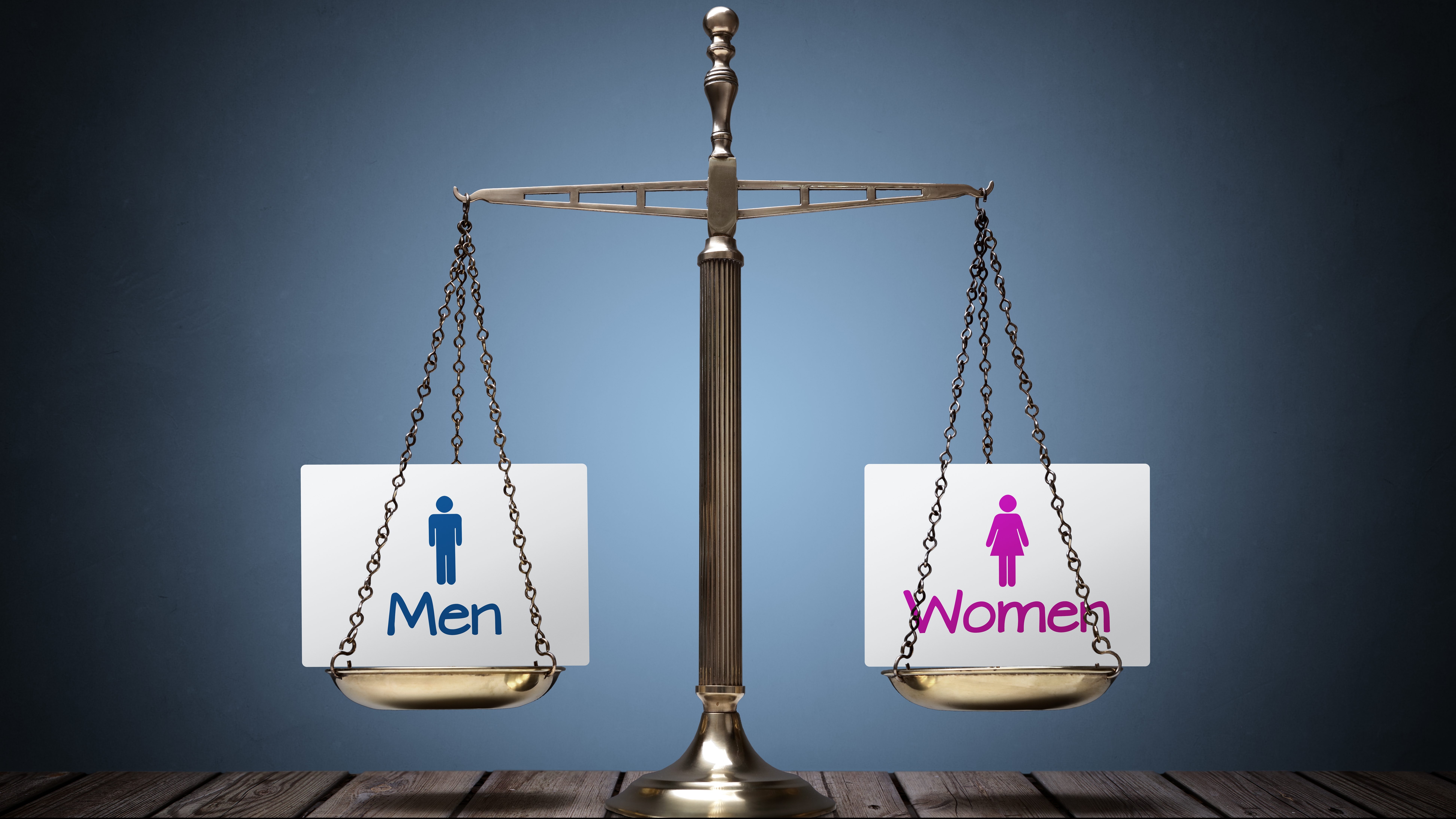The U.S. Department of Justice’s opinion is that the deadline has passed to ratify the Equal Rights Amendment, a finding supported by Alabama Attorney General Steve Marshall.
U.S. Rep. Terri Sewell, D-Ala, and others, however, say the protections for women are needed, and Alabama’s fight against its passage is misguided.
The Equal Rights Amendment, if ratified by a 38th state, would ban discrimination based on sex. Proponents of the amendment hope that Virginia’s new Democratic majority means a second chance for the protections for women.
The 38-page DOJ opinion released Monday received praise from the amendment’s opponents who say its passage would give courts too much power, but a vote to ratify remains likely in Virginia and would set the stage for an all but certain court battle.
“We conclude that Congress had the constitutional authority to impose a deadline on the ratification of the ERA and, because that deadline has expired, the ERA Resolution is no longer pending before the States,” wrote Assistant U.S. Attorney General Steven Engel in the opinion.
Congress passed the amendment in 1972 and five years later it was ratified by 35 states, but the deadline to gain the needed 38 states passed in 1979, so Congress extended the deadline to 1982.
Nevada in 2017 became the 36th state to ratify it, and was followed by Illinois in 2018.
Democratic wins in Virginia’s House and Senate revived hope among the amendment’s supporters, and the state’s Gov. Ralph Northam supports ratification.
The Equal Rights Amendment text states:
Section 1: Equality of rights under the law shall not be denied or abridged by the United States or by any state on account of sex.
Section 2: The Congress shall have the power to enforce, by appropriate legislation, the provisions of this article.
Section 3: This amendment shall take effect two years after the date of ratification.
“The DOJ opinion reaffirms that understanding and sets forth why the ERA expired in 1979 when the deadline passed without ratification from three-fourths of the States,” Attorney General Steve Marshall said in a statement Wednesday.
Marshal in December joined attorneys general for Louisiana and South Dakota if filing a lawsuit in the U.S. District Court for the Northern District of Alabama asking the federal court to rule that the time to ratify the amendment has expired.
“If this constitutional bait-and-switch is successful, there will be dire consequences for the rule of law,” Marshall said in a statement in December.
Both the House and Senate have introduced bills to remove the deadline and restart the process of ratification, and supporters of such say the original amendment contains no deadline and the Constitution does not require one, but that the deadline was only added in a joint resolution after the fact.
Rep. Terri Sewell in a message to APR on Thursday expressed support for ERA’s ratification. Sewell is one of 224 lawmakers to have cosponsored the House bill to remove the deadline.
“It is disgraceful that nearly 100 years after women fought for and won the right to vote, our equality as enshrined in the U.S. Constitution remains a matter of contention. As an Alabamian, I am particularly saddened by our state’s role in attempting to block the Equal Rights Amendment’s ratification,” Sewell said in the statement. “While I am deeply disappointed in the DOJ’s decision, I am proud to cosponsor H.J.Res.79, which seeks to strike the ERA deadline. There should be no deadline on equality.”
U.S. Sen. Doug Jones, in a statement sent to APR Thursday from a spokeswoman, also supported the amendment’s ratification.
“Senator Jones supports ratifying the Equal Rights Amendment and believes it would be a strong statement of support for the women of our state for Alabama to do so,” said Caroline Stonecipher, Jones’s press secretary, in the message.
If Virginia lawmakers do ratify the ERA, Virginia’s Attorney General Mark Herring has said he’s ready to fight to ensure the protections are afforded to women.
“It is wholly unsurprising that the Trump Administration has found yet another way to oppose women’s equality,” Herring said in a statement Wednesday. “The ERA should have been passed by Virginia and other states a long time ago. It should have been unanimous. Women in America deserve to have equality guaranteed in the Constitution. The fact that Republican attorneys general are suing to block the ERA, and that they now have the support of the Trump Administration, is absolutely repugnant.
“When Virginia becomes the 38th state to ratify the ERA I am going to do everything in my power to make sure that the will of Virginians is carried out and the ERA is added to our Constitution, as it should be,” Herring said.
Lilly Ledbetter, the Jacksonville resident whose fight for equal pay for women resulted in the Little Ledbetter Fair Pay Act, told APR on Thursday that the Equal Rights Amendment should have already been passed.
Ledbetter sued Goodyear tire plant in Gadsden after learning that she’d been underpaid for years as a manager compared to her male management colleagues. An Alabama court agreed with Ledbetter, but Goodyear appealed and the U.S. Supreme Court ruled that she’d waited too long to file a complaint under the Equal Pay Act of 1963.
Obama signed the Lilly Ledbetter ACT into law nine days after his inauguration, which allows women to file a claim at the time they discover they’ve been underpaid, removing the deadline to file shortly after the underpayment occurred.
Ledbetter said she’ll travel to Virginia later this month to participate in a march in support of the amendment’s ratification.
“I support ERA and believe all women’s lives would be better if this had been passed years ago,” Ledbetter said.





















































